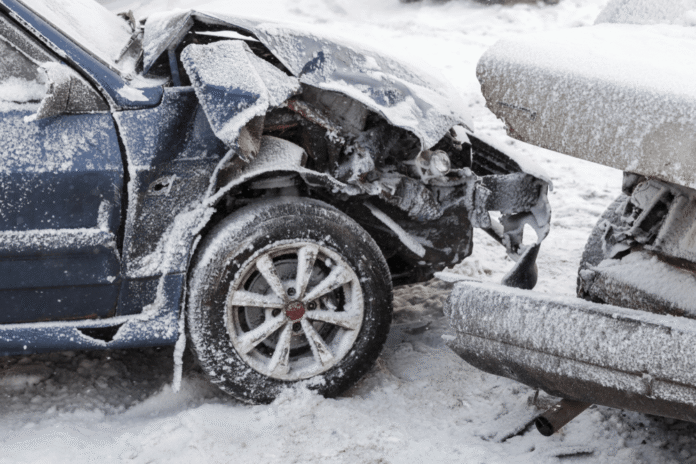Winter roads in Fort Collins can turn dangerous fast, with ice and snow creating hazardous driving conditions. Determining liability isn’t always straightforward when accidents happen—factors like speed, road maintenance, and driver caution all come into play. A car accident law firm in Fort Collins can help sort through the complexities, whether it’s holding a negligent driver accountable or assessing the role of city maintenance. Understanding how liability is determined on icy roads is key to protecting your rights after a crash.
The Dangers of Icy Roads in Fort Collins
Winter’s Treacherous Impact on Driving Conditions
Winter weather can transform familiar roads into hazardous terrain. As temperatures plummet, moisture on the pavement freezes, creating a slick surface that drastically reduces tire traction. This icy coating significantly increases the risk of skidding, sliding, and losing control of your vehicle, even at moderate speeds.
Hidden Hazards and Reduced Visibility
Winter storms often bring more than just ice. Snowfall can obscure road markings, making it difficult to discern lane boundaries or spot potential obstacles. Additionally, blowing snow and fog can severely limit visibility, creating dangerous blind spots and increasing the likelihood of collisions.
Extended Stopping Distances and Impaired Maneuverability
Your vehicle’s ability to stop quickly on icy roads is severely compromised. Braking distances can increase up to ten times compared to dry conditions, catching many drivers off guard. Moreover, sudden turns or evasive maneuvers become far more challenging, as the lack of friction between tires and road surface diminishes your car’s responsiveness.
The Deceptive Nature of Black Ice
Perhaps the most insidious danger of Fort Collins’ winter roads is black ice. This nearly invisible layer of ice forms when light snow melts and refreezes, creating a transparent coating on the asphalt. Drivers often fail to recognize this hazard until too late, leading to unexpected loss of control and potentially severe accidents.
Who’s Responsible for Maintaining Safe Roads in Winter?
Government Agencies and Their Duties
Local and state government agencies are responsible for maintaining safe roads during winter weather. The City of Fort Collins Street Maintenance Division and the Colorado Department of Transportation (CDOT) are crucial in keeping roads clear and safe for drivers.
These agencies are tasked with plowing snow, applying de-icing materials, and monitoring road conditions. They typically prioritize major arterial roads, emergency routes, and school zones to address the most critical areas.
Property Owners’ Responsibilities
While government agencies handle public roads, property owners have their own set of responsibilities. Homeowners and businesses must clear sidewalks adjacent to their properties within a specified timeframe after snowfall. This helps maintain safe pedestrian access and reduces the risk of slip-and-fall accidents.
Driver’s Role in Winter Safety
Despite the efforts of government agencies and property owners, drivers also bear significant responsibility for their safety on winter roads. You’re expected to:
- Adjust your driving to road conditions
- Maintain proper tire tread and pressure
- Keep your vehicle equipped with winter emergency supplies
- Stay informed about weather and road condition updates
Understanding these shared responsibilities can help you better navigate the complexities of liability in winter weather-related accidents in Fort Collins.
Understanding Liability for Car Accidents on Icy Roads
When winter weather strikes Fort Collins, determining liability for car accidents on icy roads can be complex. While adverse conditions play a significant role, drivers are still responsible for exercising caution and adapting to the circumstances.
The Duty of Care in Winter Driving
All drivers have a heightened duty of care in snowy or icy conditions. This means adjusting speed, increasing the following distance, and ensuring vehicles are properly equipped for winter weather. Failure to take these precautions could be considered negligence if an accident occurs.
Comparative Negligence in Colorado
Colorado follows a modified comparative negligence rule. This means that if you’re involved in an accident, your ability to recover damages depends on your level of fault. If you’re found to be 50% or more at fault, you cannot recover compensation from other parties involved.
Potential Liable Parties
While drivers bear primary responsibility, other parties may share liability in certain situations:
- Government entities responsible for road maintenance
- Other drivers who create hazardous conditions
- Vehicle manufacturers, if defects contributed to the accident
Understanding these factors is crucial when navigating the aftermath of a winter weather-related accident in Fort Collins. Consulting with a local attorney experienced in handling such cases can provide valuable guidance in determining liability and pursuing appropriate legal action.
Final Thoughts
Winter weather doesn’t absolve drivers of responsibility, but proving fault in an accident can be challenging. Working with a car accident law firm in Fort Collins gives you the legal guidance to navigate insurance claims and potential lawsuits. Knowing your rights can make all the difference in securing fair compensation when the roads get slippery.
